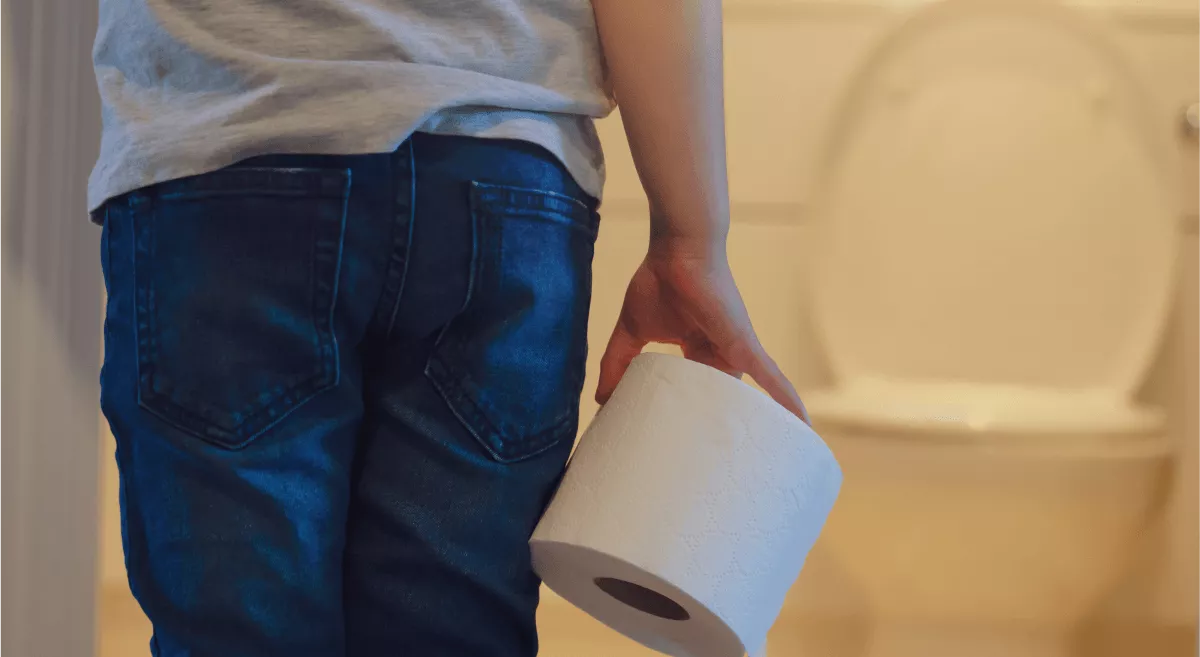Food and water bourne diseases are seen more frequently during summer months, most common of which include diarrhoea and food poisoning.
What is Diarrhoea?
Diarrhoea is when stools have changed from usual pattern and are loose and watery, especially when a recent change in consistency of the stool occurs. Consistency refers to the degree of firmness of stools, with normal stool consistency being soft, and stool in diarrhoea having more water content than solid faecal matter, making them loose and watery.
The frequency and consistency of stools varies normally with age and diet in children, with infants and younger children passing more frequent stools compared to older children and adolescents.
In exclusively breast fed infants, stools are typically liquid to semi-solid, frequent and may be yellowish, golden brown or on occasions greenish in colour. This is not diarrhoea.
The usual duration of diarrhoea is 5–7 days; though sometimes it can last for more than 14 days, when it is called persistent diarrhoea.
What causes diarrhoea?
Diarrhoea in children is most often caused by viral infections such as rotavirus infections; bacterial infections are another important cause. This often results in short term or acute diarrhoea and lasts less than 14 days. Longer duration, persistent or chronic diarrhoea are also caused by viral and bacterial infections, and also due to parasitic infestations, infections affecting intestines or intestinal diseases such as inflammatory bowel disease.
What are the symptoms of diarrhoea?
They can include:
- Cramping
- Stomach (abdominal) pain
- Sense of bloating/ “gas”
- Feeling nausea
- More frequent passage of stools
- Fever
- Bloody stools (when it is called dysentery)
- Loss of control leading to the inadvertent passage of stools.
The most important consequence of diarrhoea is loss of body water and salts which lead to dehydration. In such cases, children
- May become restless and irritable
- Have sunken eyes
- Drink eagerly, are very thirsty
- Have a dry, sticky mouth
- No tears when crying
- Pass urine less frequently than normal, often less than 6 times in a day.
In more severe cases, children
- May become lethargic or unconscious
- Are not able to drink or drink or breastfeed poorly
- They may have a sunken soft spot on their heads
- Pass very less urine
- Have cold extremities
- Have blood in stools.
In the above cases or if the age is less than 2 months, the child must visit a doctor or hospital immediately.
What fluids should be given to a child with Acute Diarrhoea?
1. ORS – Oral rehydration salt (ORS) solution is recommended as the choice of fluid for rehydrating a child with diarrhoea. ORS is available as powder, which is reconstituted to a solution with water. The appropriate volume of water for reconstitution should be checked on the printed information as this differs between different packets, most commonly the contents of 1 sachet are dissolved in 1L of boiled and cooled, clean drinking water.
2. Other fluids – home available fluids such as rice water, dal water, soups, Buttermilk and Coconut water can be offered during diarrhoea. Plain water can also be offered.
Using ORS
ORS should be given in small sips at frequent intervals, if the child vomits, restart after 10-15 minutes at a slower rate. The reconstituted ORS solution should be used immediately; if the unused solution is not discarded, it should be stored in the refrigerator for a maximum of 24 hours. It should not be boiled after reconstitution. The appropriate dilution must be followed at all times, otherwise, they may not have the recommended composition of electrolytes and sugar.
The amount of oral rehydration salt (ORS) solution to be given after each loose motion is based on the age groups. Generally, ORS can be given as follows:
| Age of the child | Amount of ORS solution |
| Up to 2 months | 5 teaspoons after each loose motion |
| 2 months to 2 years | 1/4–1/2 glass (50–100 mL) |
| 2 years to 10 years | 1/2 cup to 1 glass (100–200 mL) |
| Over 10 years | As much as needed, upto 2 L/day. |
Zinc supplementation
All children with acute diarrhoea should complete 14-day course of zinc, even if they recover before this period as zinc supplementation reduces risk of diarrhoea for the next 3 months. The dose is based on age and based on doctor’s prescription.
Diet in Diarrhoea
There is no need to restrict diet in children during diarrhoea as this will affect recovery as well as their growth. If child is being breast fed, Breastfeeding must be continued. In older children, meals must be given in small quantities at frequent intervals; rice based diet with pulses, or other cereals if often the best during diarrhoea as these are readily available and easily prepared at home.
It is best to avoid avoid giving drinks with lots of added sugar such as carbonated drinks as they can worsen diarrhoea and do not have the electrolytes in recommended doses.
Diarrhoea is most commonly caused by infections, maintaining hygiene including personal and food hygiene is therefore very important. This includes washing hands before and after handling or preparing food; eating meals; attending to a child or sick person. Hands must also be washed after using the toilet; wiping or blowing your nose; coughing and sneezing and changing baby’s diapers.
Vaccination with antiviral vaccine such as rotaviral and measles viruses play an important role in preventing complications related to these infections.
The Key interventions for managing diarrhoea include rehydration with ORS solution; administering Zinc for 14 days; continued age appropriate feeding and rational use of antibiotics.





